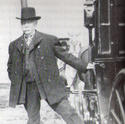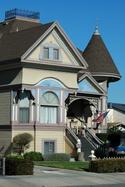Could oil price manipulation have created the rerun of the Great Depression that we are currently enduring?
Think about it. The doubling of gas prices had a profound effect on disposable income and the affordability of housing, whose subsequent downturn set the stage for economic collapse.
We now know that Wall Street speculation drove oil from $69 a barrel to nearly $150. But this article purports to explain why. read more »






















